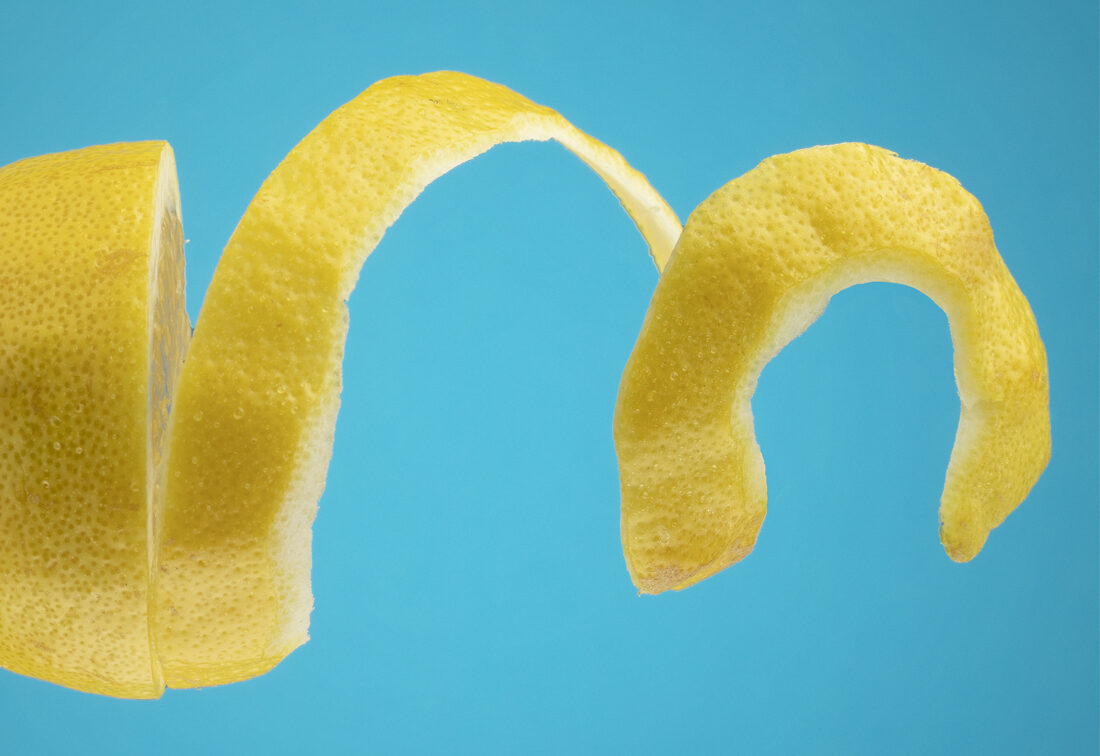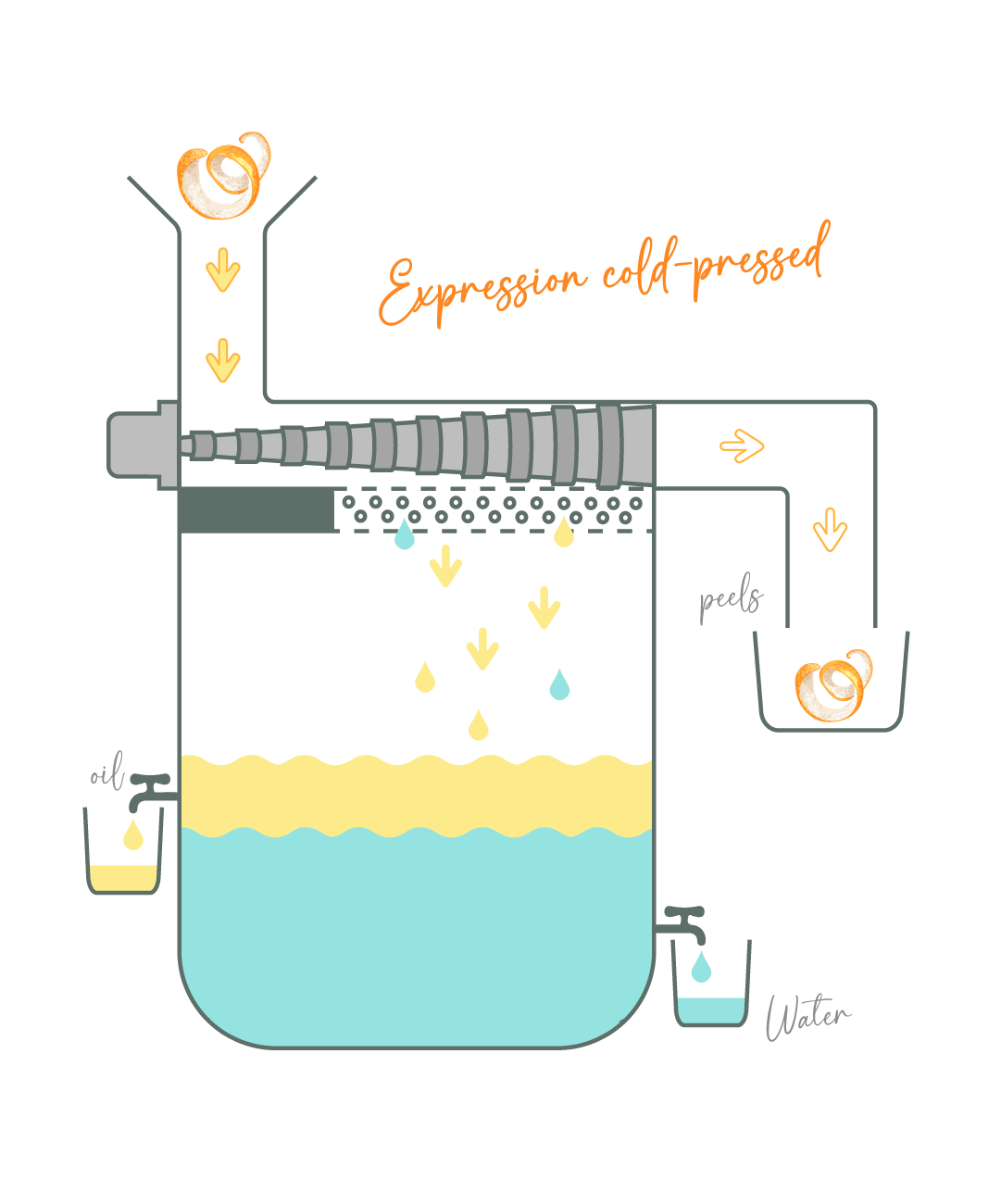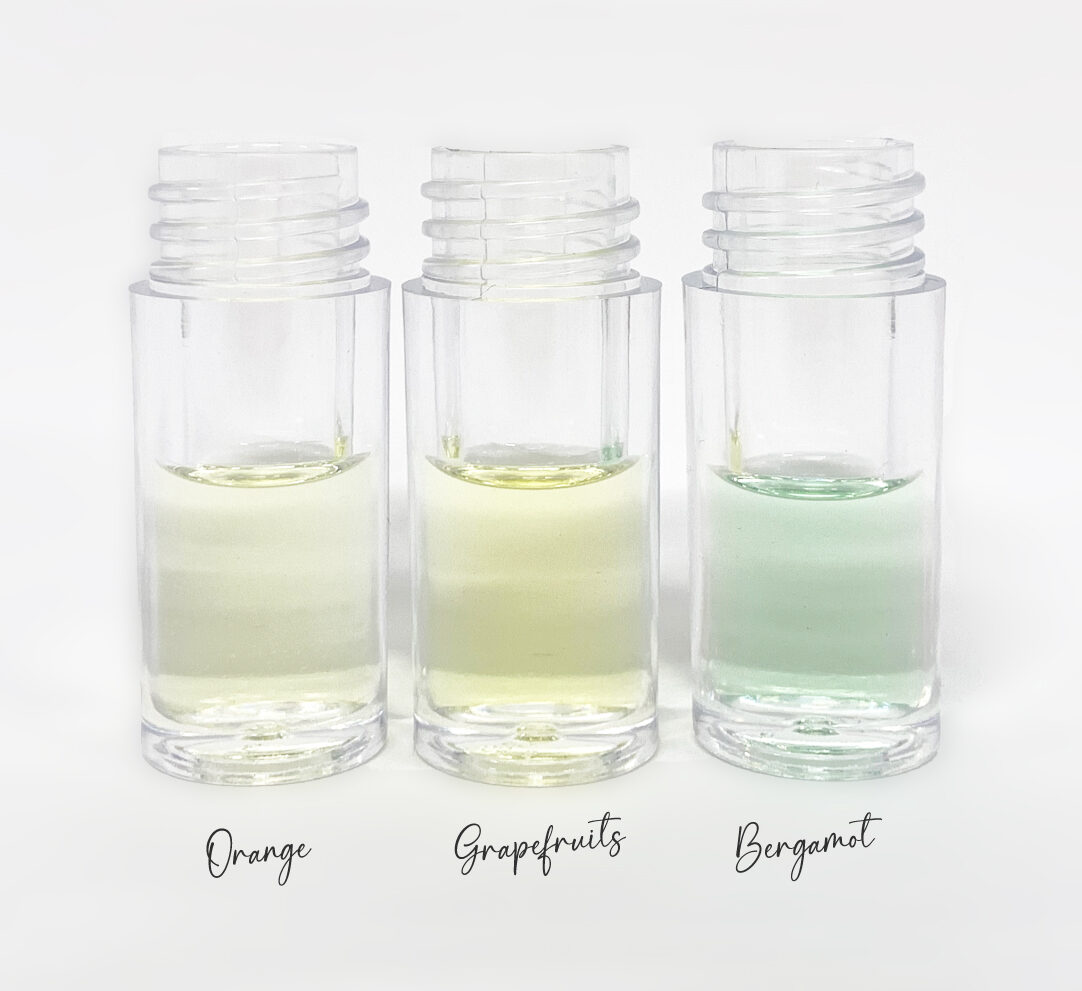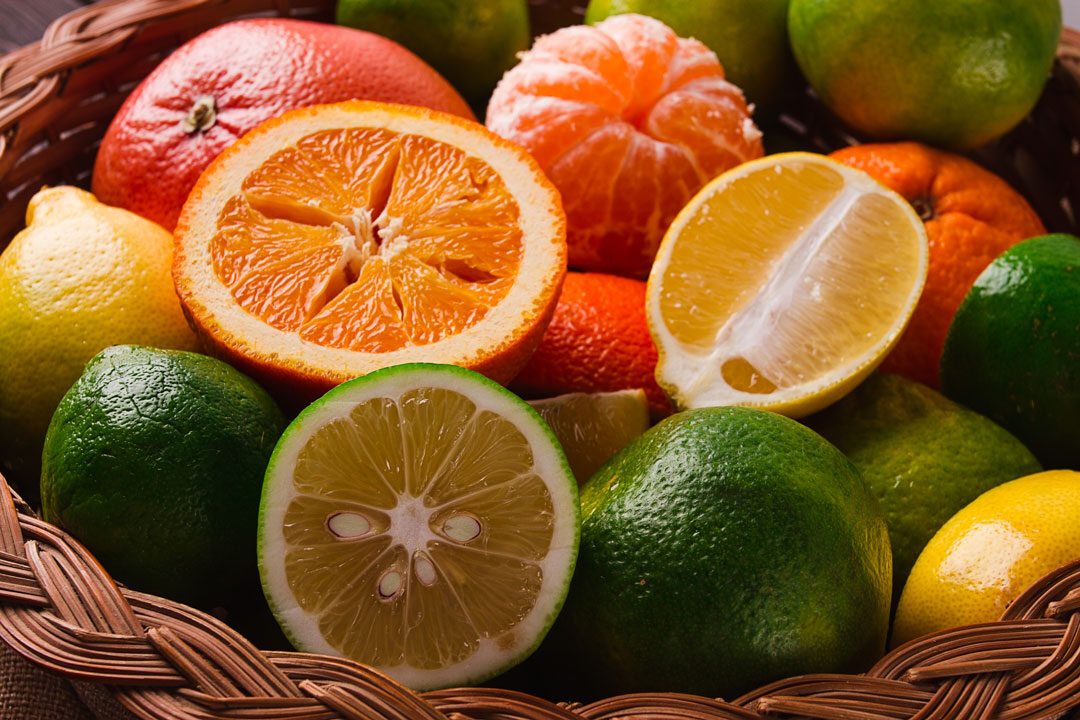Hello everyone,
During the winter, citrus fruits such as yuzu, lemon, and mandarin oranges are harvested in Japan. The citrus peels are used to extract natural fragrances (essential oils), and pressing is the main method used to extract them.
Many of you may be wondering what the differences are between this method and steam distillation, which is a commonly used extraction method, and what the advantages and disadvantages are for the two methods.
In this 20th edition of FRAGRANCE LAB.BLOG, we would like to discuss “Extraction of Natural Fragrances Vol. 2: Pressing Method”.

What is the pressing method?
Expression cold-pressed is a method of extracting essential oils from citrus fruits by pressing the peel. The essential oil of citrus fruits is stored in the parts called oil glands in the cells on the surface of the peel, and by applying strong pressure to the peel with a rolling machine, these oil glands are crushed, and the essential oil is extracted.
When you peel oranges by hand, you may notice that the liquid spouts out from the peel and makes your hands sticky, which is the evidence that the oil has come out due to the rupture of the oil glands. Since essential oil pressed by rollers also contains liquid derived from the peel, it is separated into liquid and oil by centrifugal separation.
Unlike steam distillation, this extraction method does not involve any heat at all, so it is also called cold pressing.
The history of cold pressing is newer than that of steam distillation, which was developed in Italy in the 19th century. In Italy, a major citrus-producing region, the peel was pressed by hand and the essential oil was absorbed by a sponge, which was then squeezed to collect it in a container (also known as the “sponge method”). However, since this method required a lot of labor for a small amount of extraction, it was gradually mechanized and became the current method of production.

■Advantages
As mentioned above, this is a heatless extraction method, there is almost no change in composition of the essential oil, and it can be extracted in a more natural state. In addition, since the pigments derived from the rind are extracted at the same time, the essential oil itself has the natural color of the rind.
■Disadvantages
The quality of the essential oil deteriorates more quickly than steam distilled oil because some impurities, such as fiber from the peel, can easily be mixed in during pressing. The fact that it contains many delicate components that are prone to chemical changes is another reason for its quicker deterioration.
The ironclad rule is to use up essential oils extracted by pressing as soon as possible after opening it.

Why is the pressing method suitable for citrus fruits?
The main reason why the pressing method is more suitable than the steam distillation method for extracting citrus essential oils is because of the aroma compounds that make up the fragrance. To get a bit technical, the aroma of citrus fruits such as orange and lemon is mostly composed of monoterpenes such as limonene, which are very easily degraded. Since heat can degrade these aroma compounds during steam distillation, pressing, which does not apply heat, is more suitable for extracting a fresh, pure aroma.

However, some citrus fruits contain phototoxic compounds called furocoumarins (which can damage the skin when exposed to ultraviolet light while on the skin), and the steam distillation method is sometimes used to remove these compounds.
The pressing method was developed by engineers in Italy, a world leader in citrus production, to reproduce the natural and original aroma of citrus fruits.
Lastly,
This issue of FRAGRANCE LAB. BLOG was “Extraction of Natural Fragrances Vol. 2: Pressing Method”. Below are some examples of fragrance products with citrus characteristics, and they are available for you to check out at stores.
See you again in the next issue of FRAGRANCE LAB. BLOG – Fragrance Etc.

